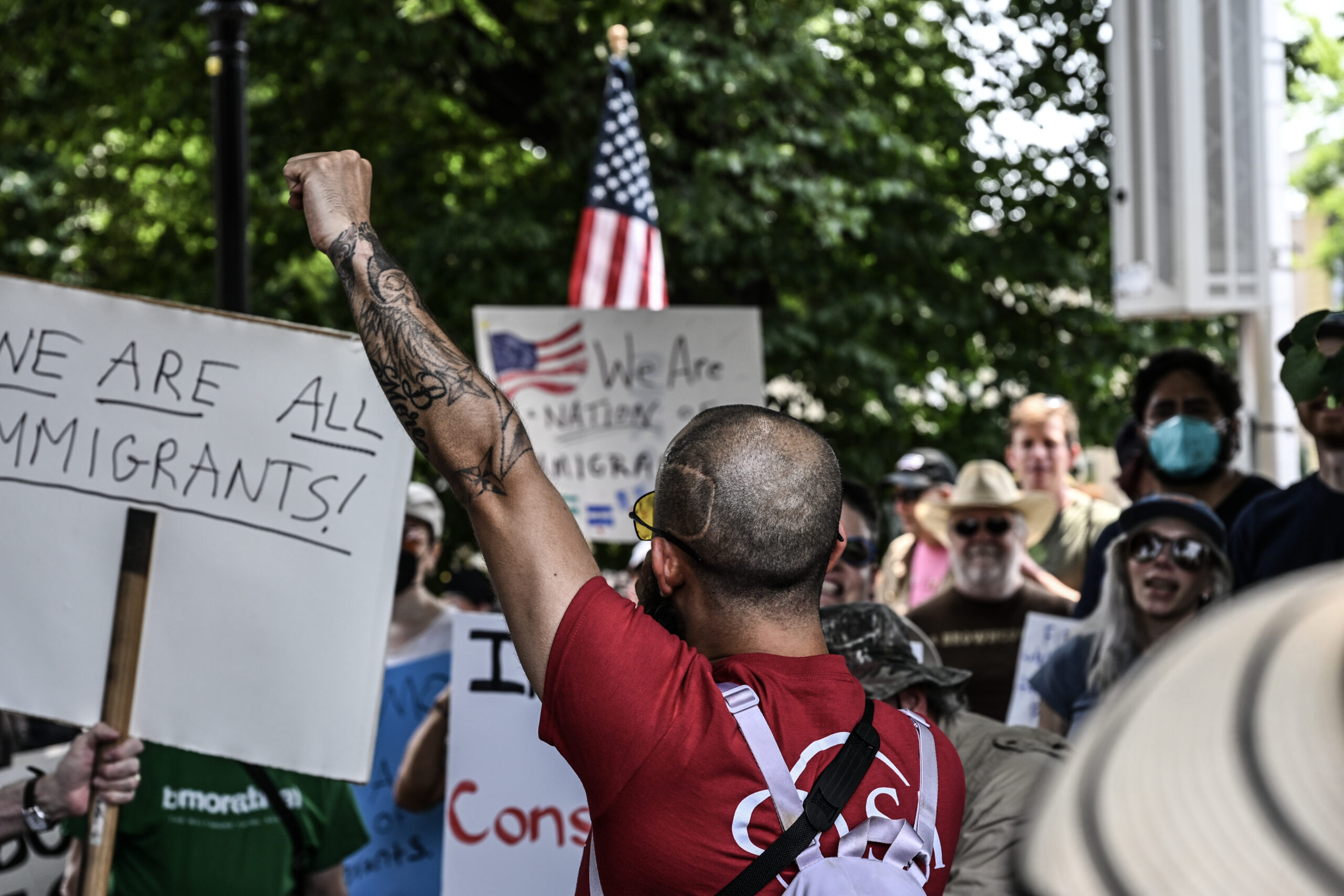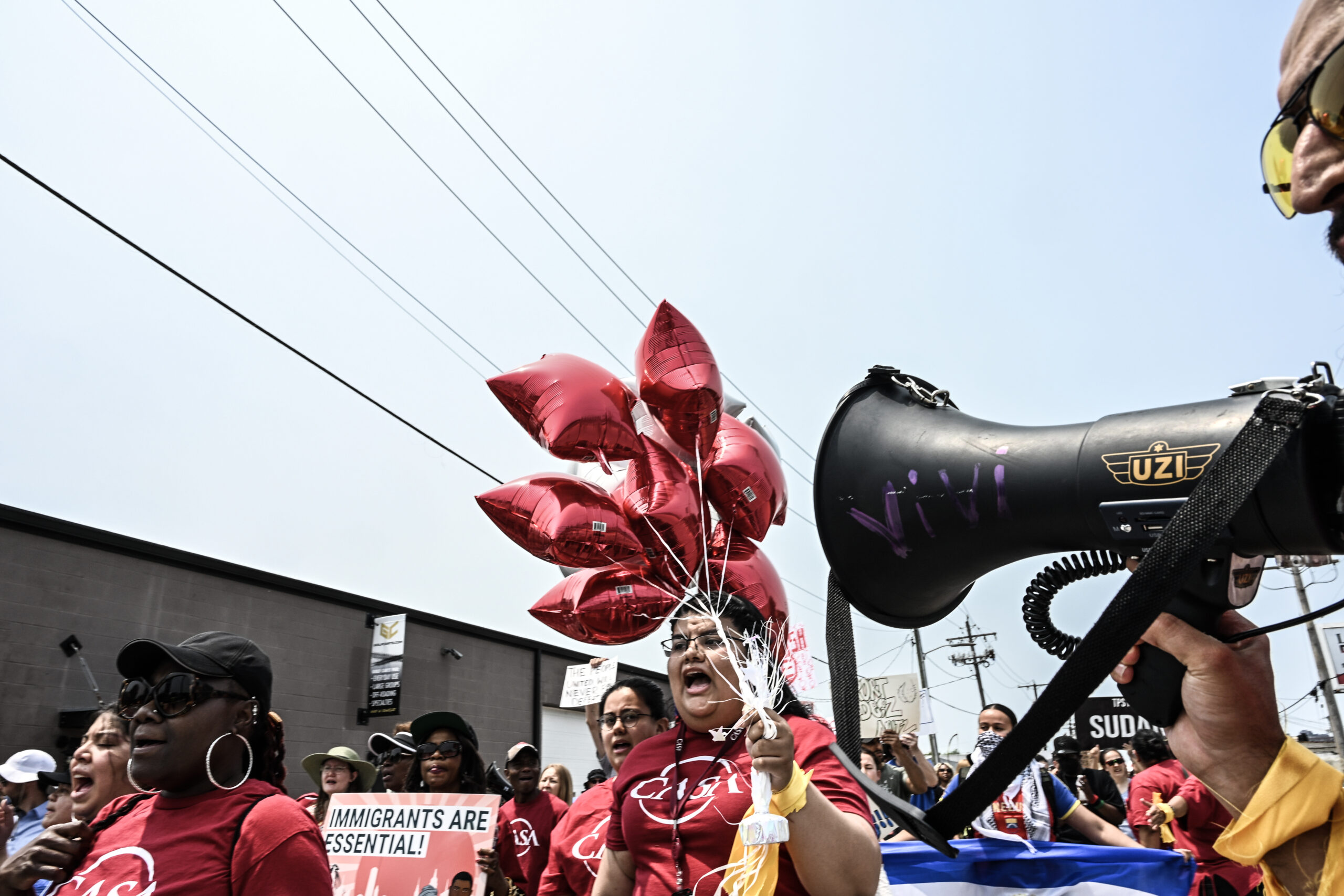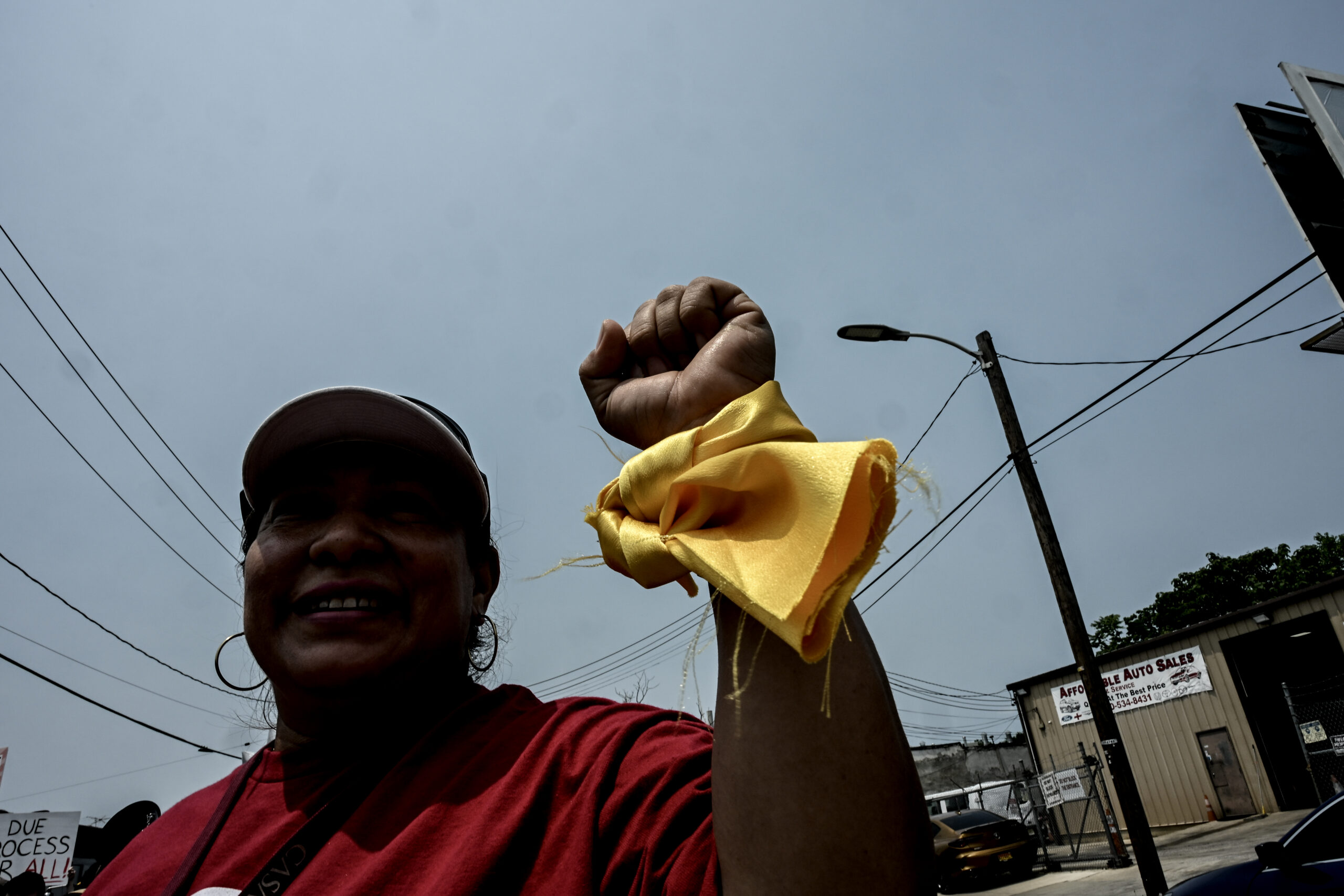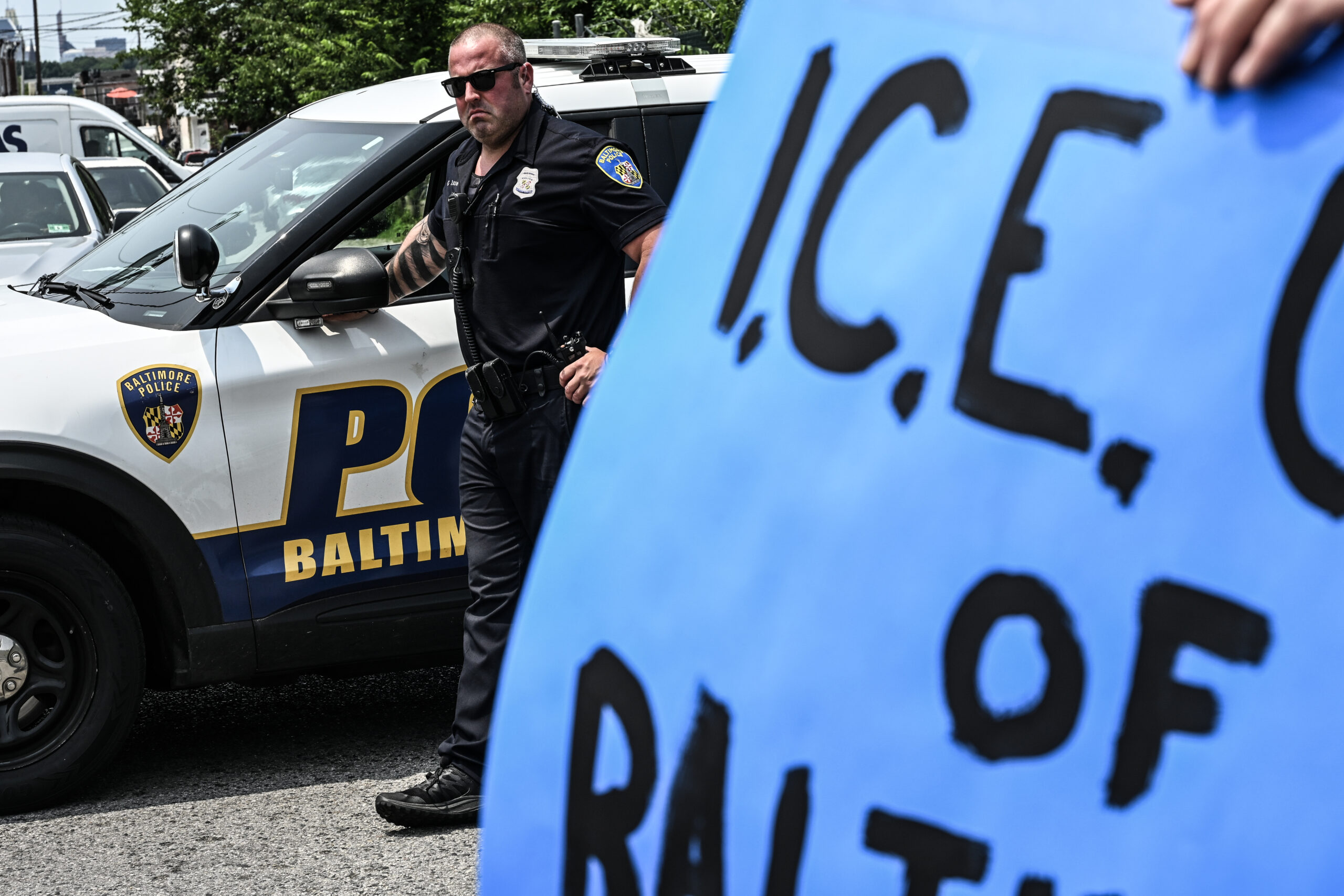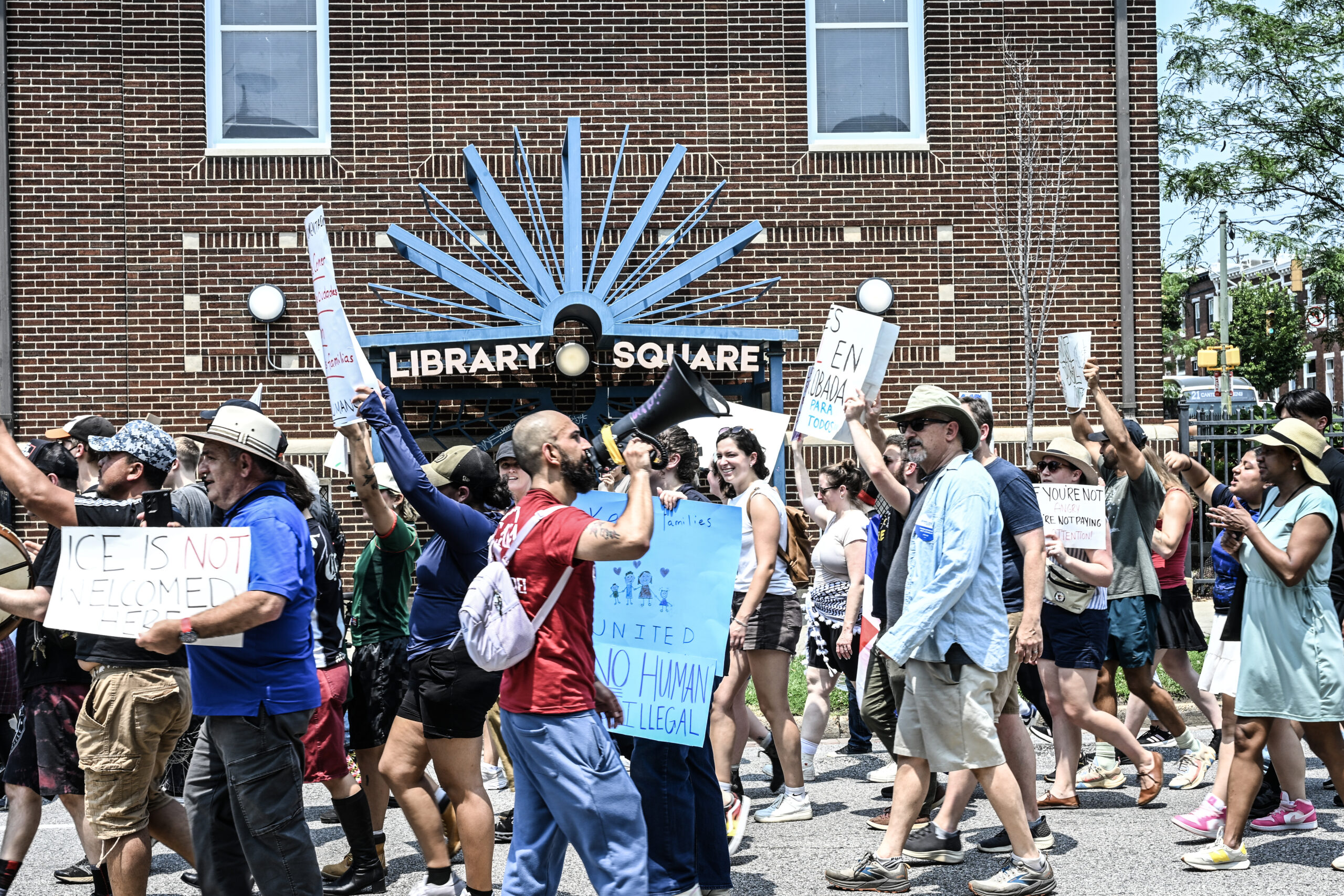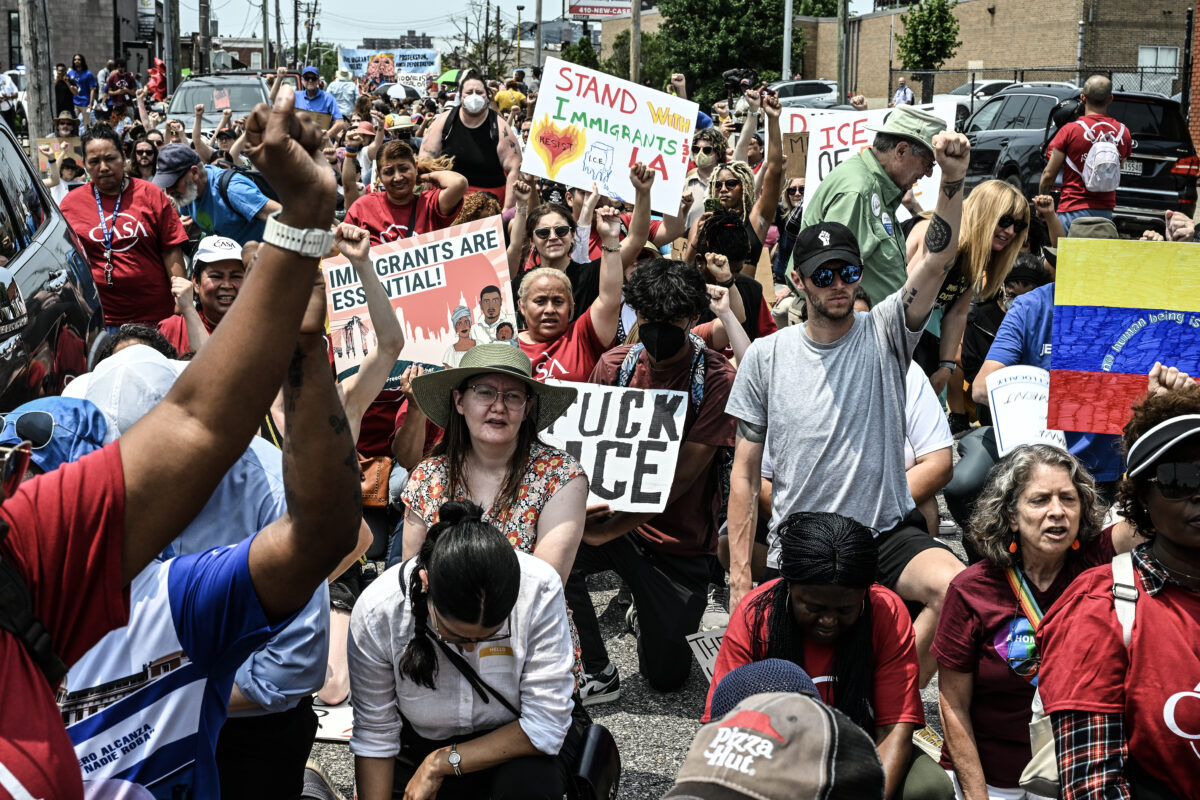
Hundreds of Baltimoreans gathered at Casa de Maryland’s Welcome Center on Pulaski Highway for a noon street march through Southeast Baltimore Wednesday to voice opposition and outrage against recent ICE raids in the city.
Carrying signs with messages like “ICE Out of Baltimore,” “Keep Families Whole,” and “My Family Didn’t Come Through Ellis Island the Right Way—They Just Showed Up,” protestors marched to a nearby Royal Farms and then a Hazlo International Food grocery store, where immigrants have been picked up and detained by ICE agents in recent days.
Along the way, numerous cars and trucks honked in support of the marchers, with residents and local store employees coming out to applaud and record the demonstration.
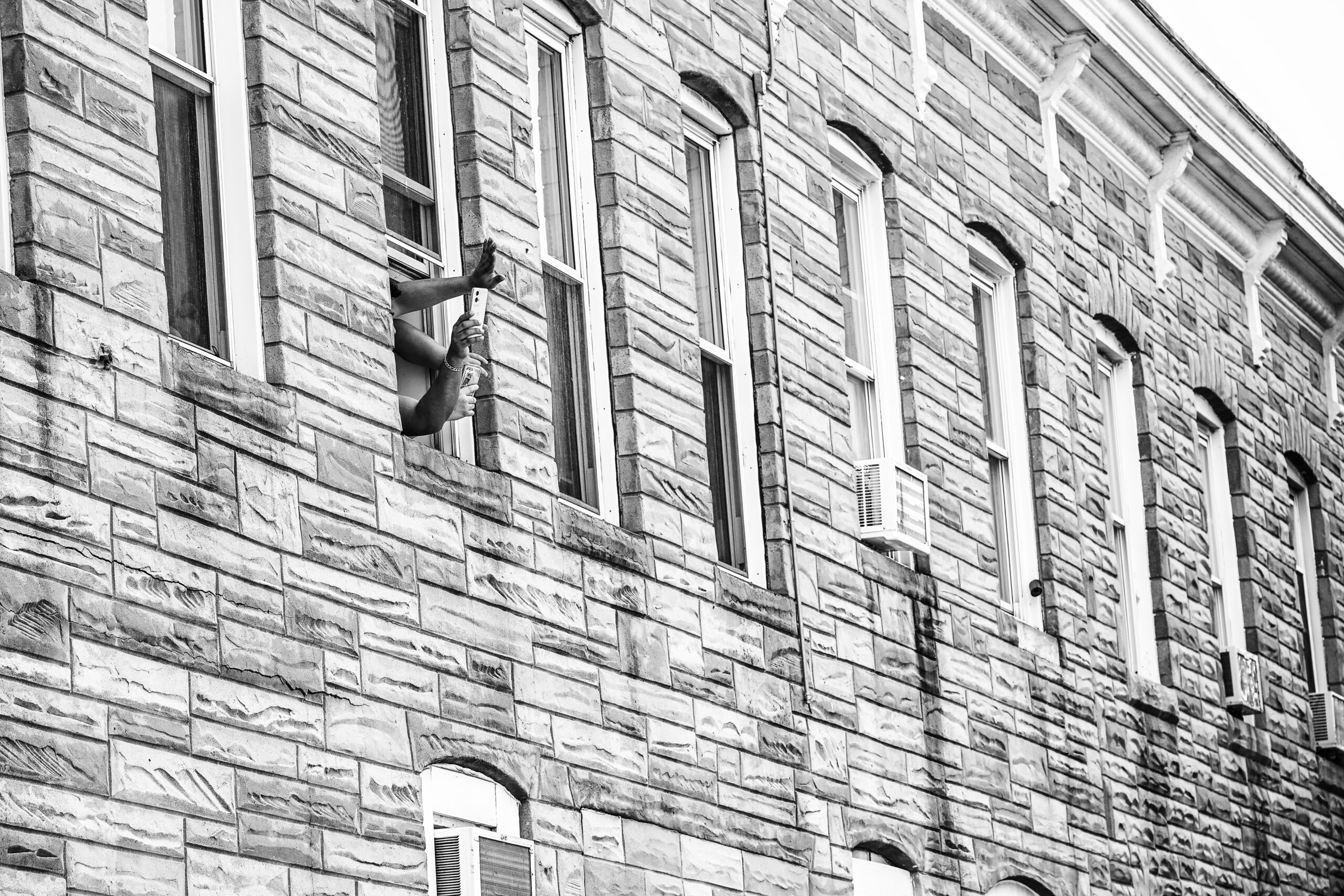
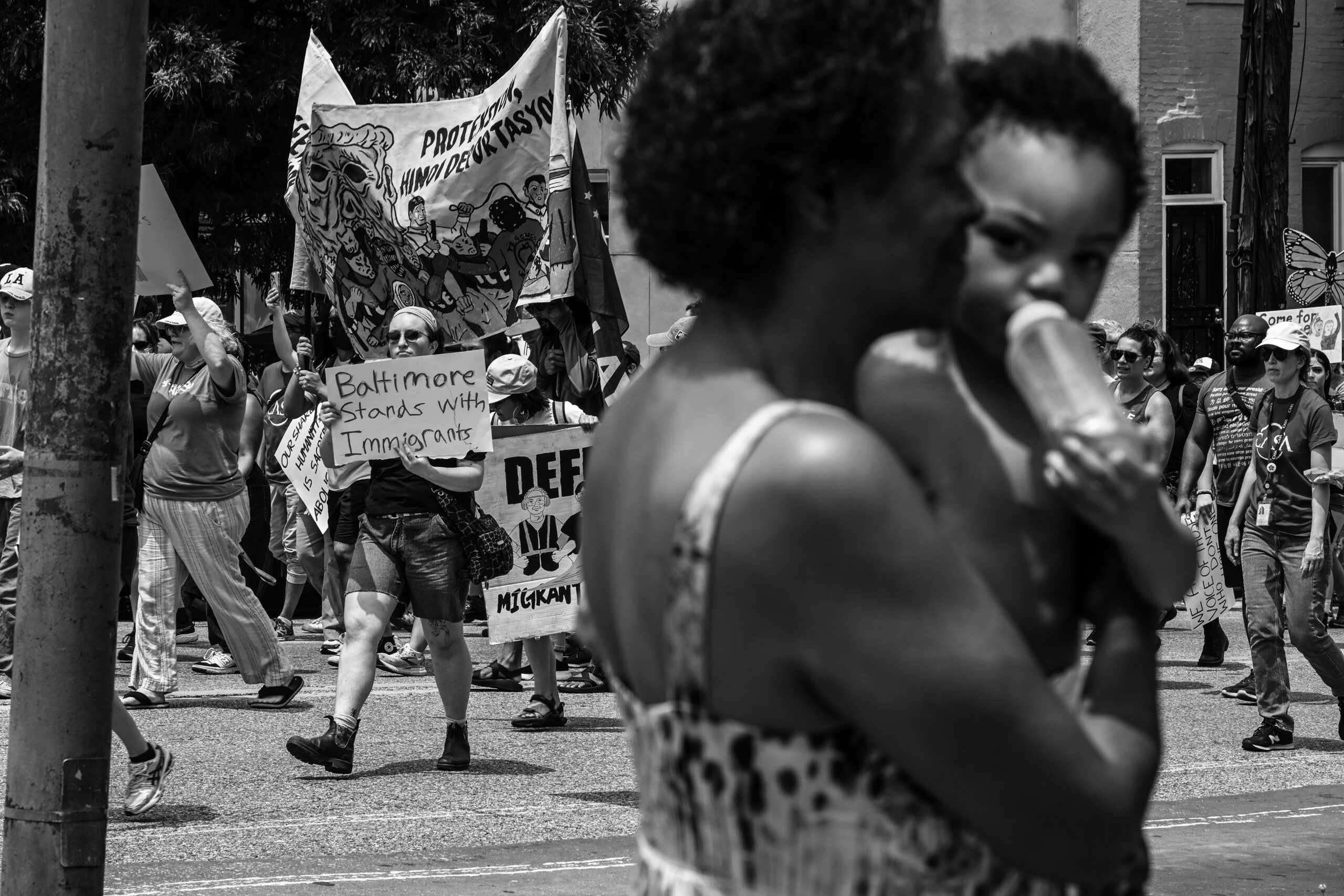
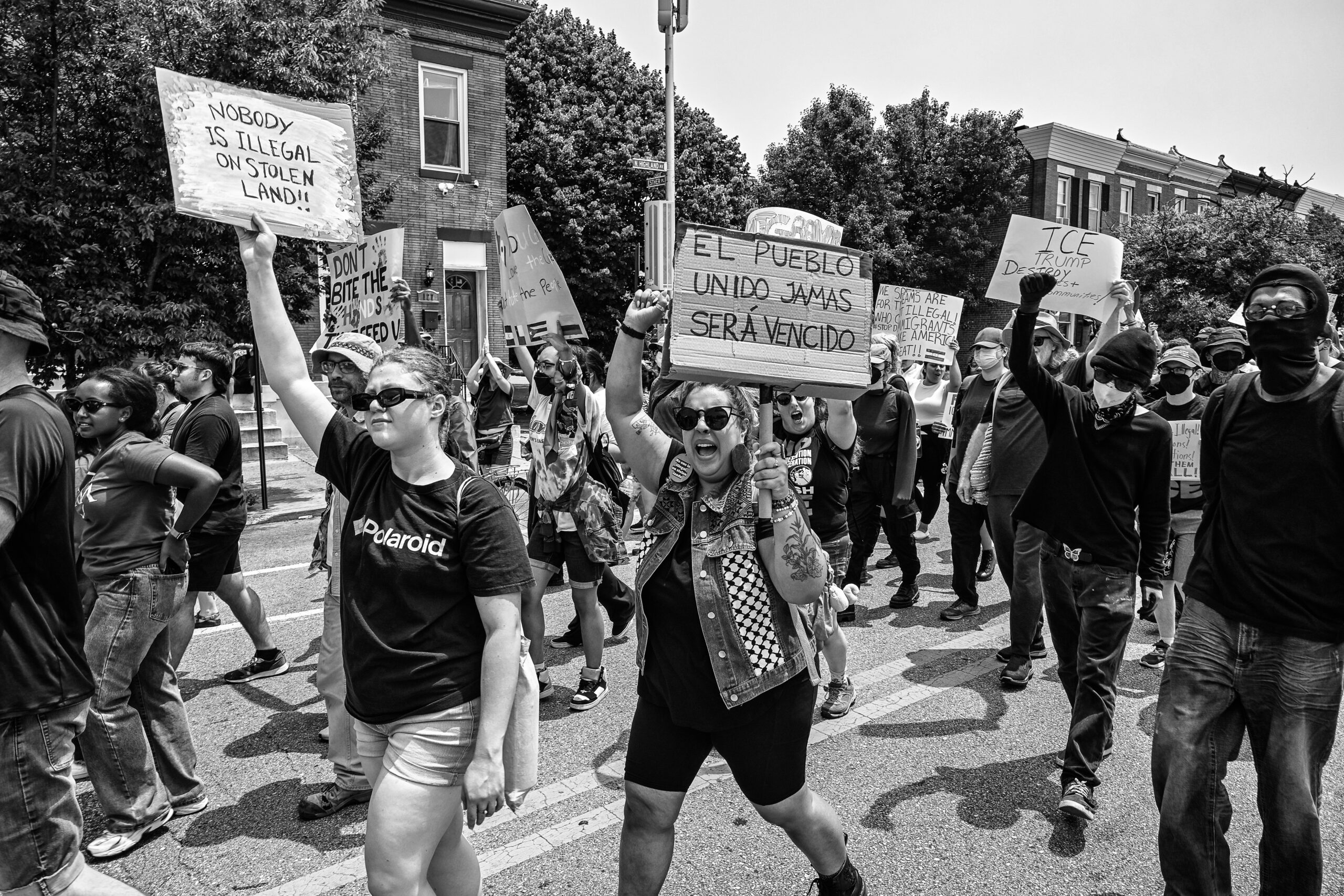
The grassroots action came amid a sharp increase in immigration raids around the country, in line with the new, ICE-led Trump Administration plan, known as “Operation At Large,” which is designed to boost arrests of unauthorized immigrants. According to reporting from NBC News, the plan includes utilizing more than 5,000 federal law enforcement personnel and up to 21,000 National Guard troops.
In the wake of the uptick, marches have emerged in cities including New York, Philadelphia, Chicago, Seattle, Portland, Denver, Las Vegas, and, notably, Los Angeles—where protestors have clashed with ICE agents and law enforcement.
Now 35 and a small business owner, Missael Garcia—a former CASA organizer and a volunteer at Wednesday’s demonstration—came to Baltimore from Mexico when he was 12. The Patterson High School graduate and Greektown resident said those in the city’s immigrant community have become fearful of even leaving their homes to take care of basic responsibilities, like going to work, getting their children to school, and buying food.
“What’s been happening with the ICE raids has people very afraid,” Garcia said. “We can’t sit around and not do anything about it any longer. We must come out, like today, and support our community in any way we can. The time to just sit and watch what’s going on is over.”
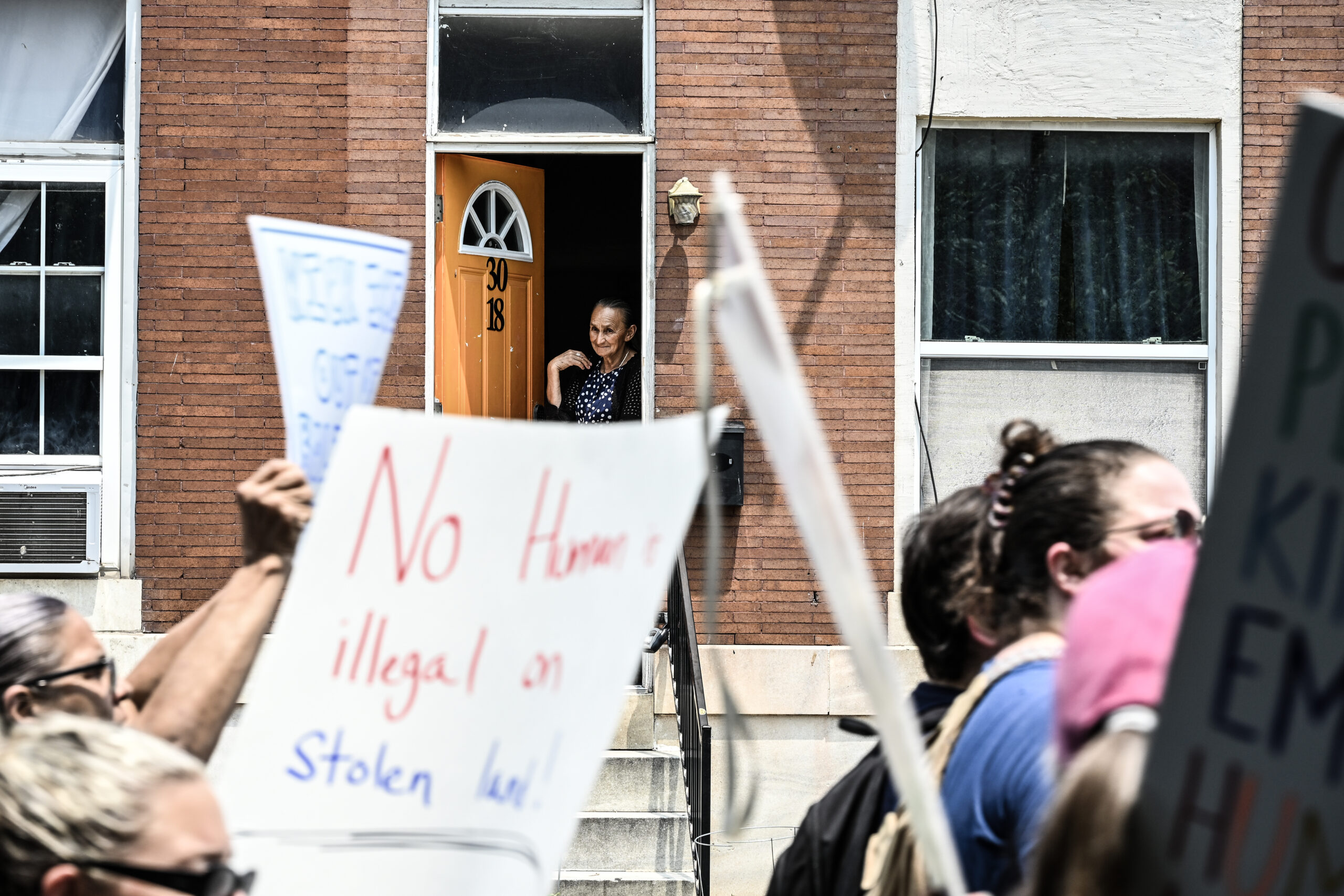
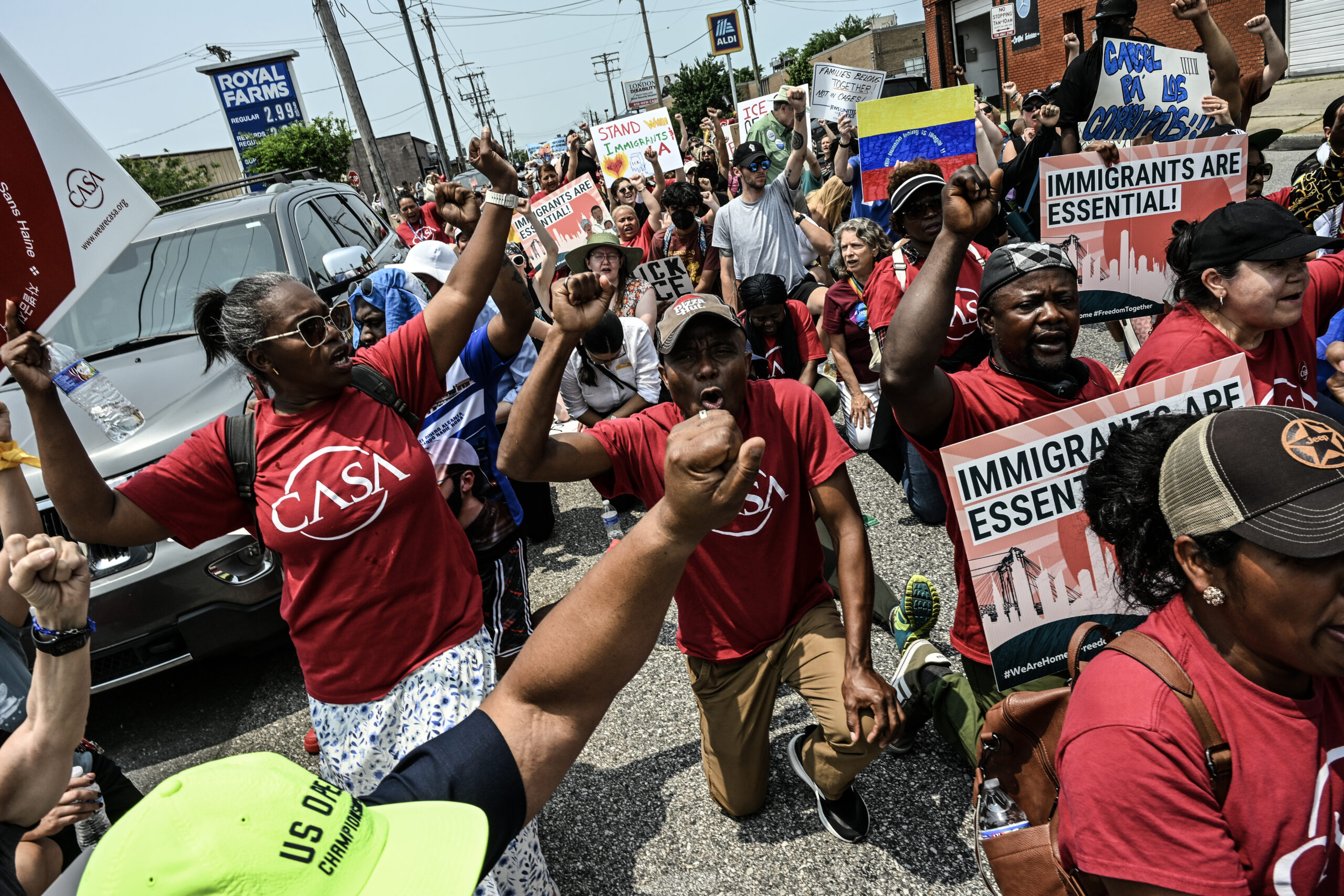
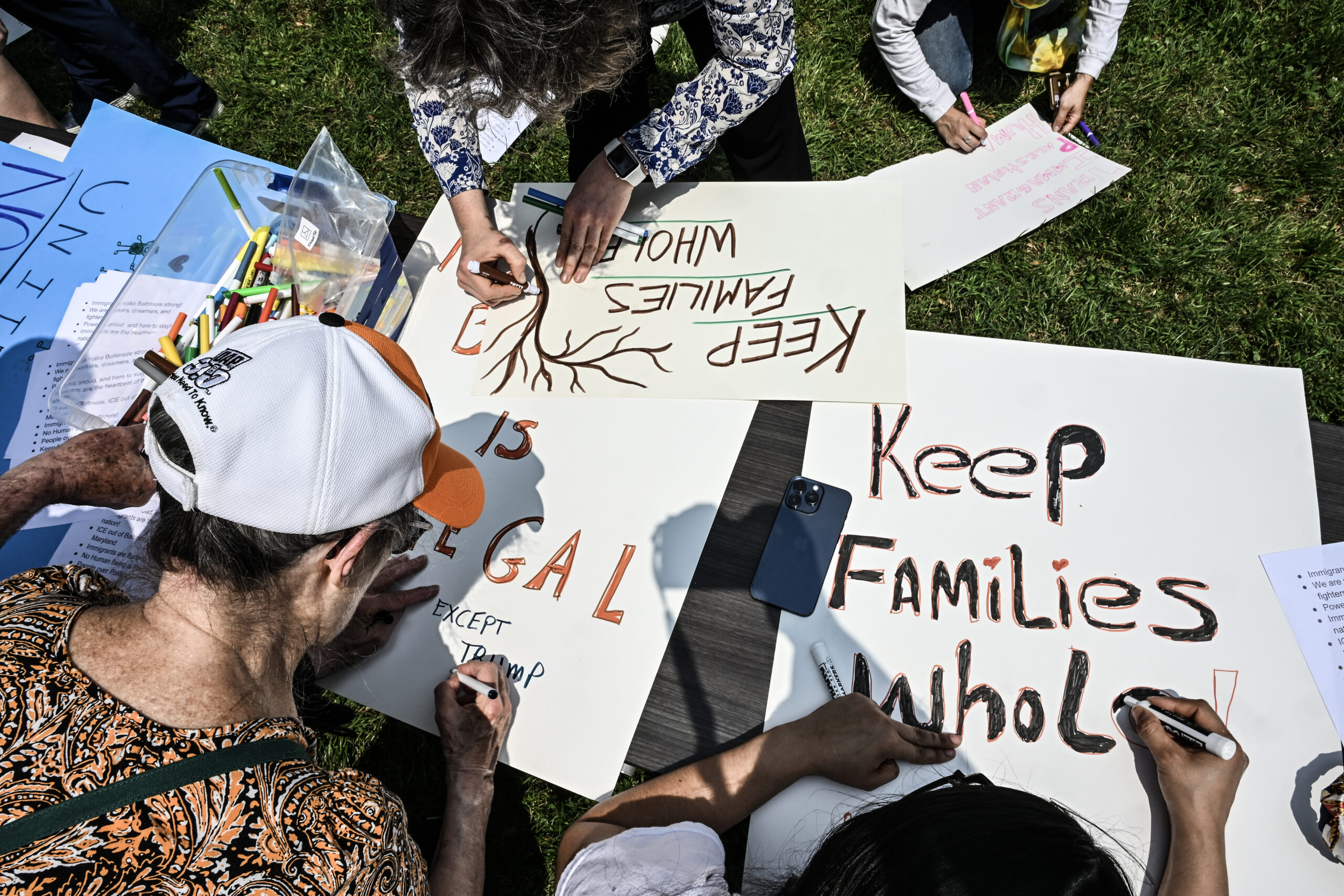
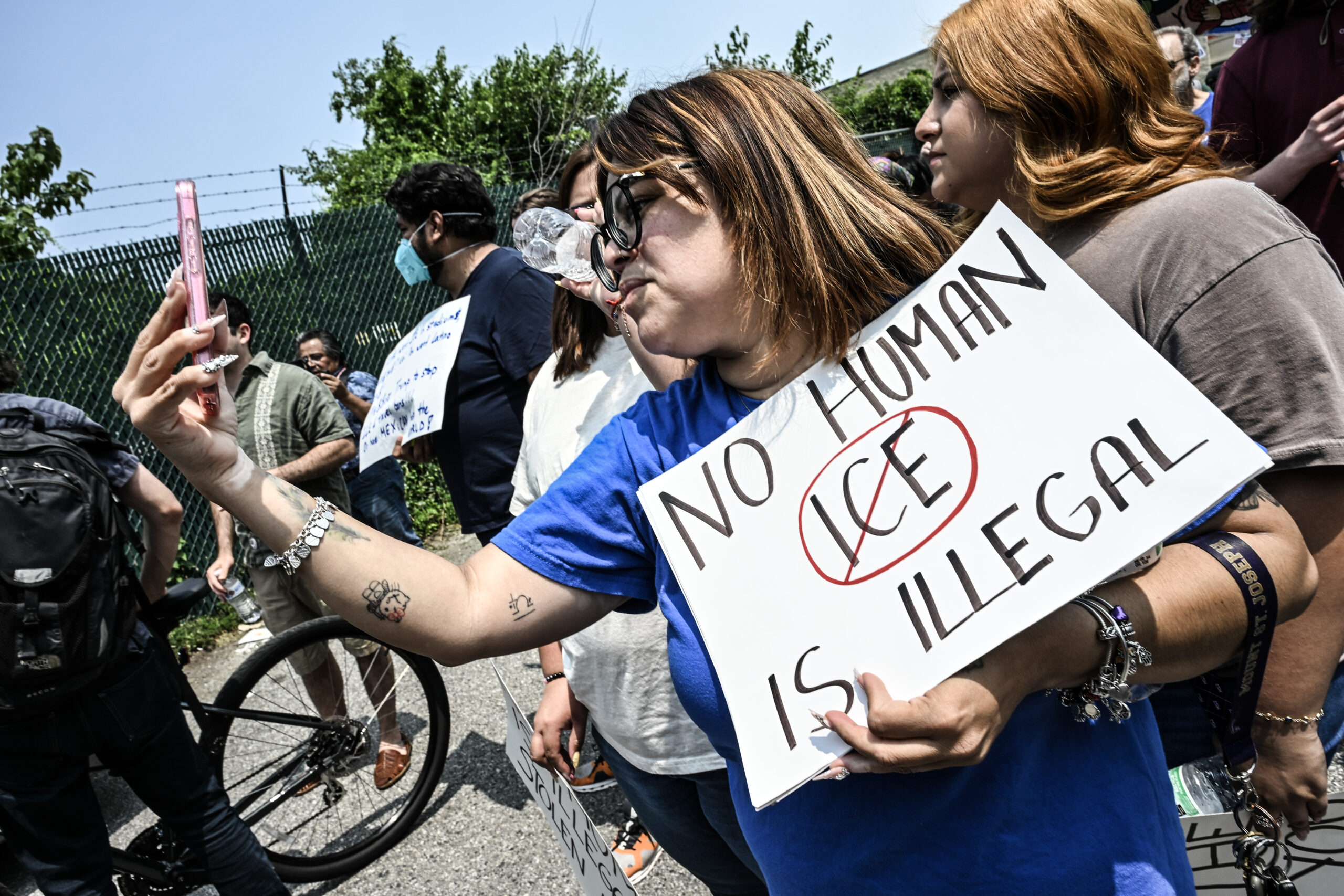
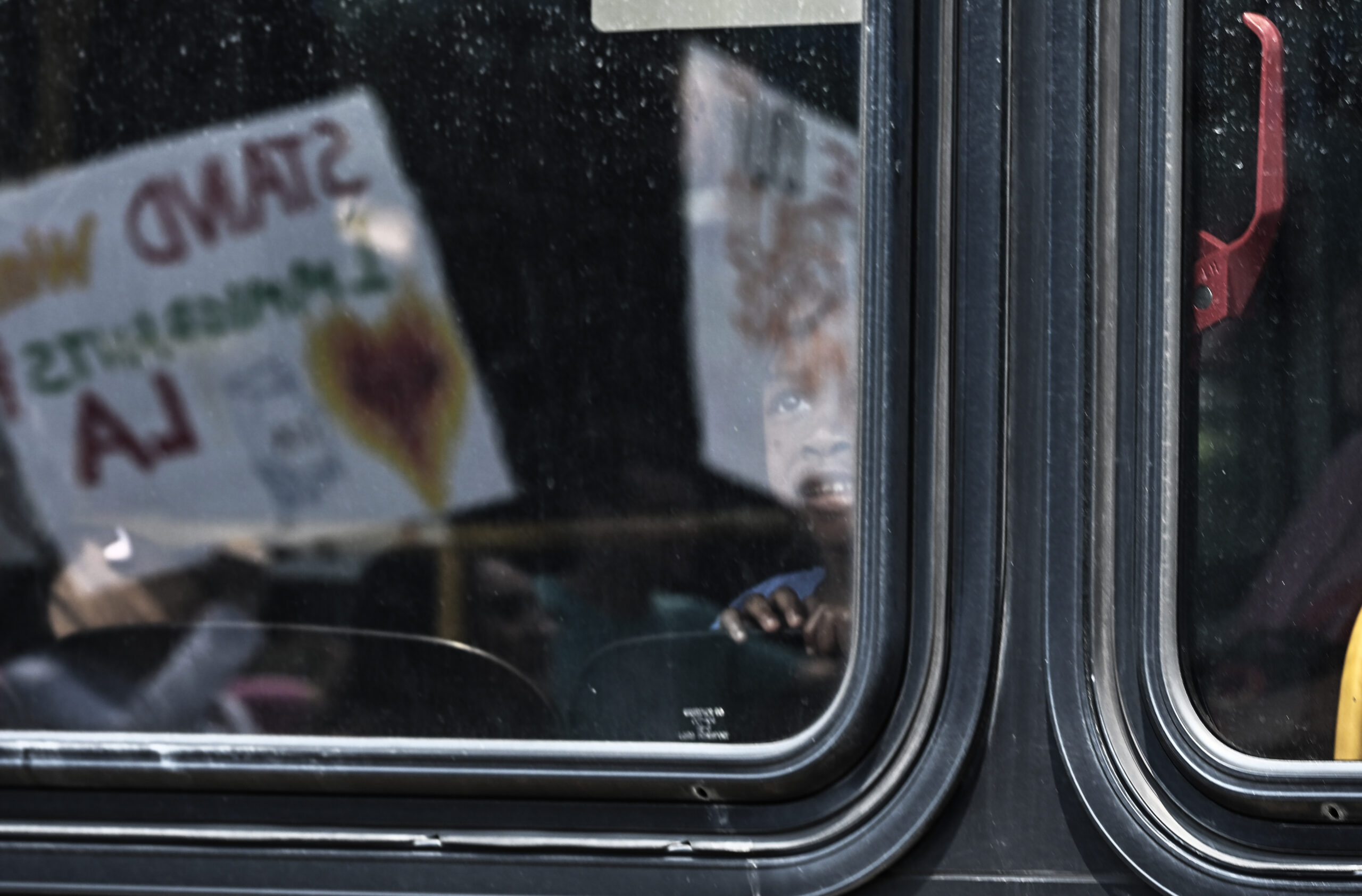
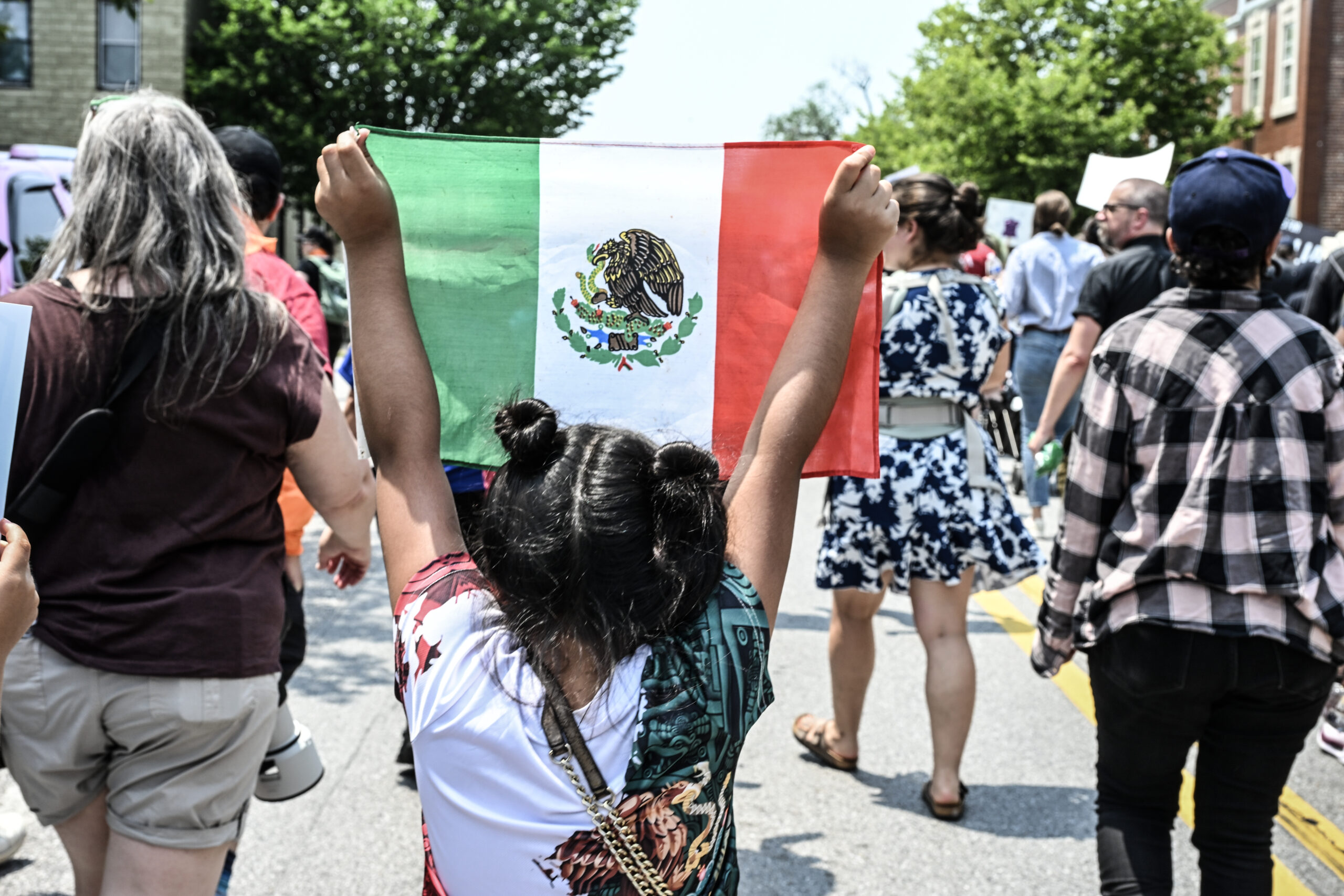
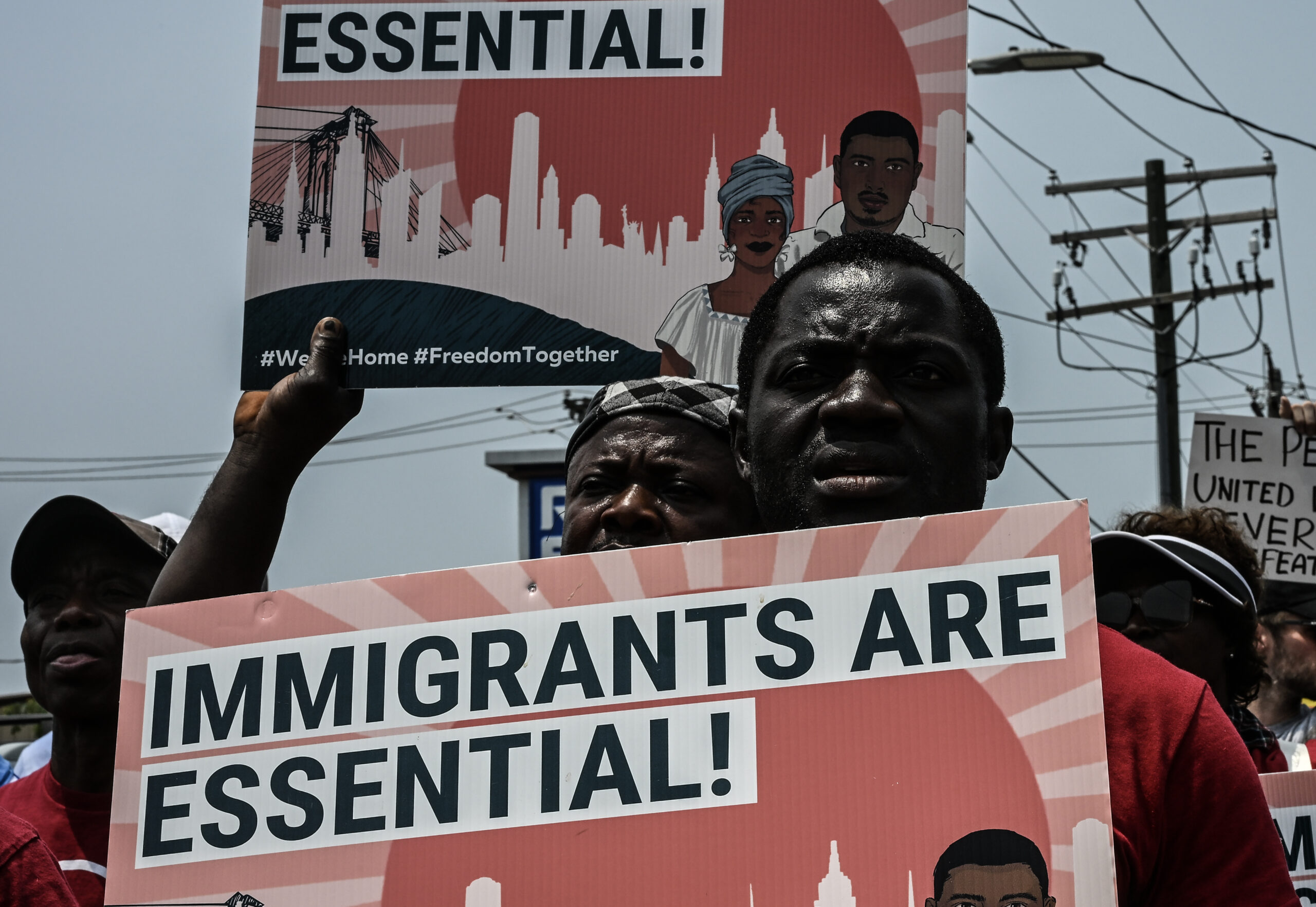
Pastor Steve Holt of the Church of the Guardian Angel in Remington reiterated Garcia’s words, noting the tradition of support for immigrants in his faith and others. Currently, he said, immigrant members of his church have become hesitant to simply visit the church’s food pantry.
“The Christian and Hebrew faiths have a lot to say about ‘welcoming the stranger,’” Holt added. “It’s part of what we are called to do as Christians. Jesus was a refugee in Egypt.”
Earlier this week, neighbors around the intersection of East Baltimore and Ellwood—not far from the Casa’s Welcome Center—witnessed ICE arrests of two individuals and tried to block their vehicles from leaving with the detainees.
Southeast Councilman Mark Parker joined Wednesday’s protest along with Councilwoman Odette Ramos, the first Latina elected to City Council. A local pastor who is fluent in Spanish, Parker said ever since the Trump Administration ordered ICE to ramp up arrests two weeks ago, his office has been receiving daily calls about raids and detentions in his district.
He also said no one knows exactly how many individuals have been detained by ICE officers in Baltimore, but that the uptick in ICE raids and arrests has worsened the already difficult conditions at the downtown Baltimore ICE field office.
“Only lawyers and clergy are allowed to visit, and I’ve visited once,” Parker said. “There are no showers there, no beds, no food service—they just grab bags of food from Costco—and now it’s overcrowded,” Parker said. “It’s awful.”
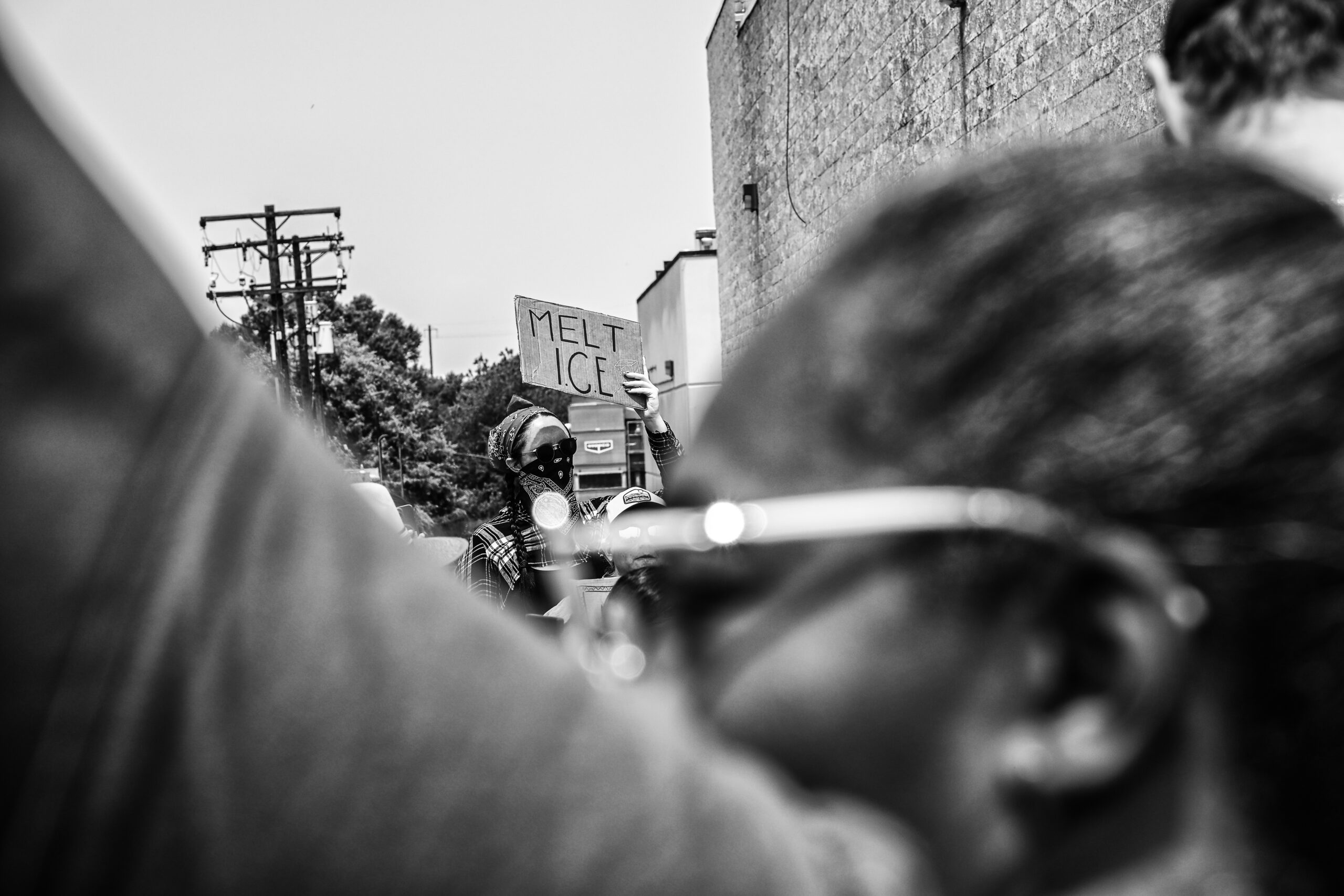
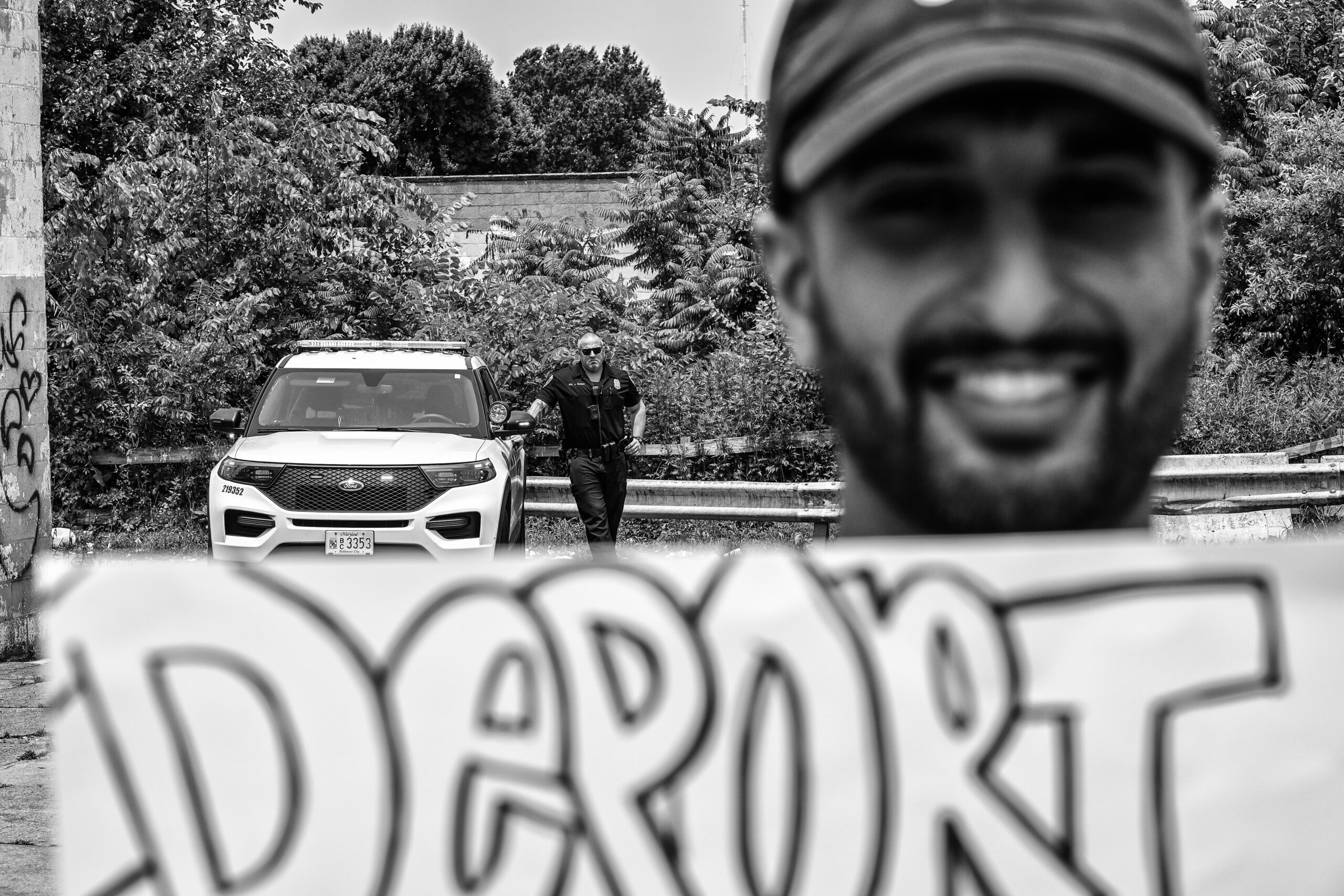
The large turnout Wednesday was surprising given that it was the middle of a weekday. Those who came and marched did so to express opposition to the Trump Administration arrests of non-criminal, undocumented individuals, many of whom now face the likelihood of deportation and separation from their family without due process.
“It’s a matter of standing up for the dignity of others,” said Rabbi Miriam Liebman with Jews United for Justice. “We cannot fix everything, and we cannot finish everything, but we have to show up.”
